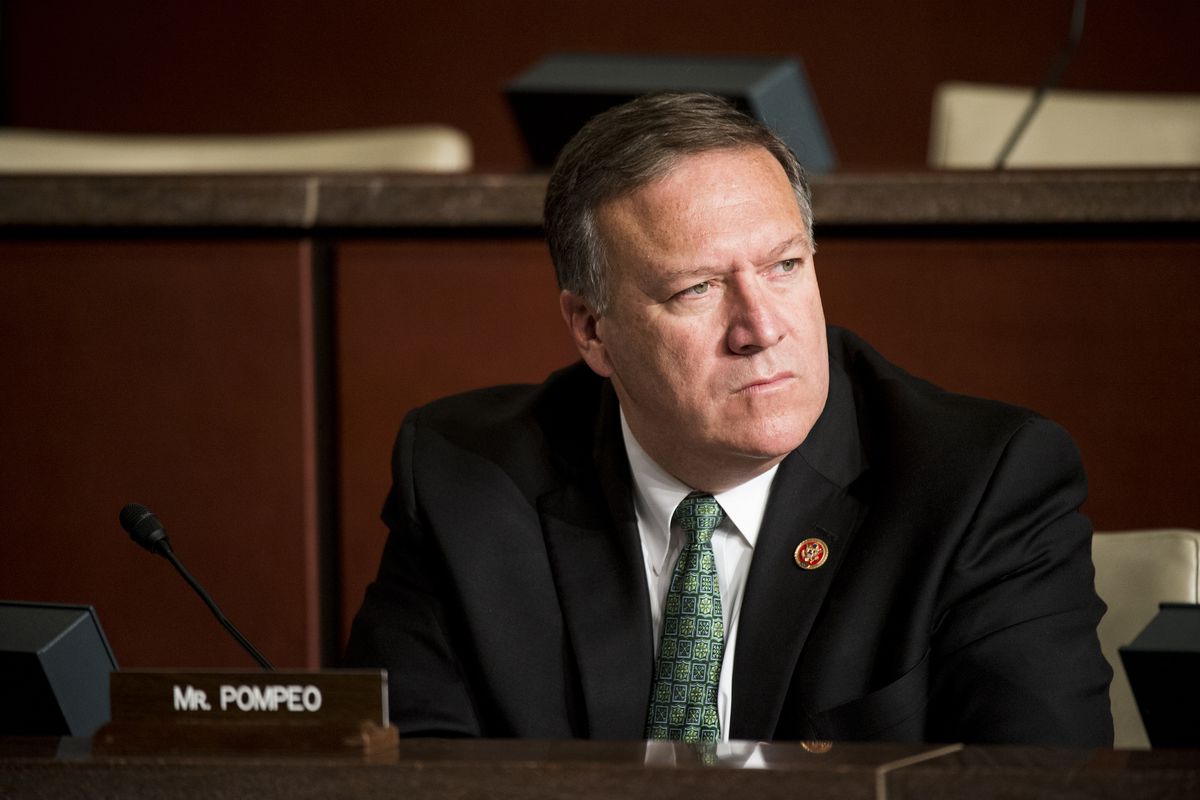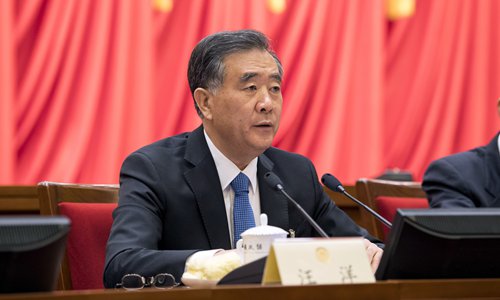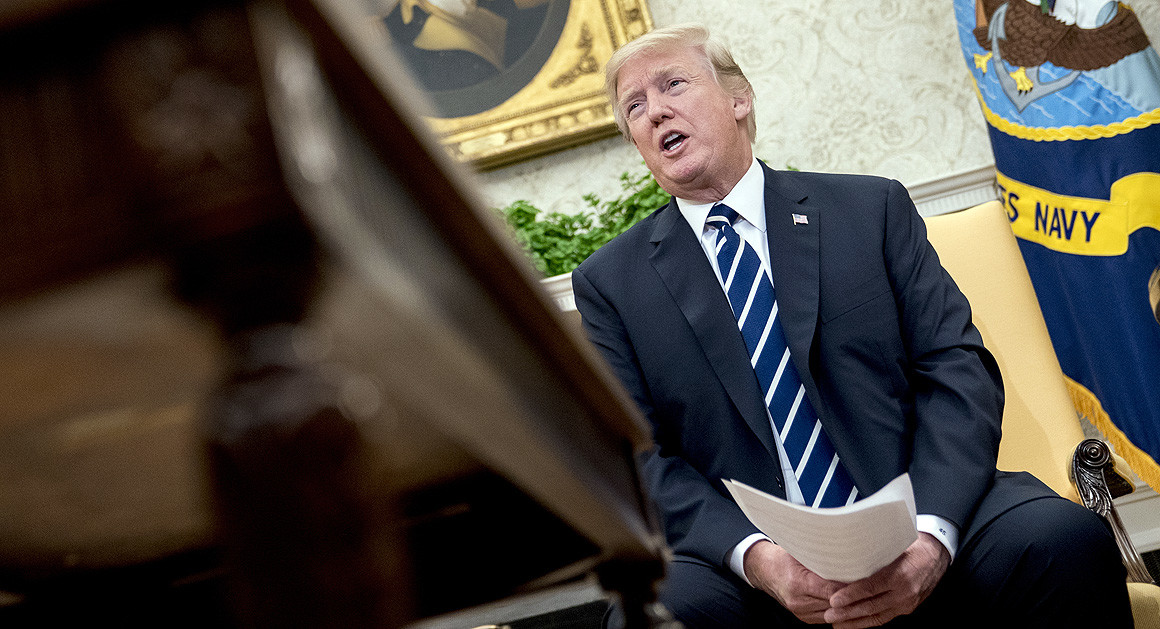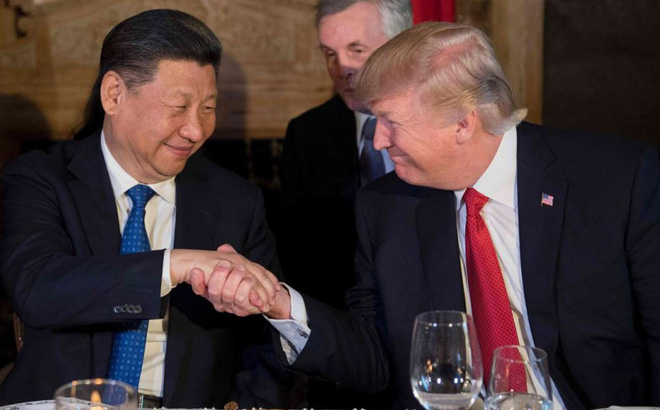
 Tillerson to be Replaced by Mike Pompeo as Secretary of State
Tillerson to be Replaced by Mike Pompeo as Secretary of StateAfter months of tension between President Trump and Secretary of State Rex Tillerson over policy issues, on Tuesday, the president announced to the public in a tweet that he was replacing Tillerson as secretary of state with Mike Pompeo, the director of the CIA. Despite the well-known differences of personality and opinion between Trump and Tillerson, the announcement came as a surprise, reportedly even to the secretary himself.
"We were not really thinking the same," Mr. Trump told reporters at the White House, according to The New York Times. In the past year, the president and Tillerson had acted almost as separate foreign policy voices on issues such as North Korea, free trade and the Iran nuclear deal. Last December, as we noted in China This Week, Tillerson suggested that the U.S. was ready to talk to North Korea "without preconditions," while the president said that Tillerson was "wasting his time" trying to push for a diplomatic solution. These confused messages from the administration lead many commentators to predict that Tillerson would have a short tenure as secretary of state. He will end his service in the administration at midnight on March 31.
Whether Tillerson's removal will lead to any significant change in U.S. foreign policy stances is now up for discussion. China-US Focus contributor Benjamin Reynolds wrote in an article this week that Mike Pompeo, Tillerson's replacement, is "a well-known hawk and hardliner regarding North Korea and Iran. . .he may act as a more confrontational voice on foreign policy issues in place of Tillerson's." Reynolds noted Pompeo's mixed statements in the past on China, including on the one hand, support for the Trump administration's protectionist stance on steel and aluminum and planned tariffs on Chinese products, and on the other hand, praise for President Xi Jinping. Chinese Foreign Ministry spokesman Lu Kang said in a press conference on Wednesday that he "hope[d] the personnel reshuffle will not have an impact on Sino-U.S. relations or on major cooperation between China and the U.S."
Pompeo will step in as secretary of state at an important juncture for the State Department. With a potential upcoming meeting between North Korea and the United States, personnel appointments well due, the Section 301 investigation into intellectual property theft pending the announcement of results, and an upcoming deadline to recertify the Iran nuclear deal, he will have a lot on his plate.
 Week Two of the "Two Sessions" in Beijing
Week Two of the "Two Sessions" in BeijingBeijing continued to be a source of heightened political activity this week, as many important announcements were made at the "Two Sessions," including new leadership, government restructuring and political reforms.
On Wednesday, Wang Yang was elected chairman of the National Committee of the Chinese People's Political Consultative Conference (CPPCC), which is the top political advisory body in China. This appointment follows his promotion to the Politburo Standing Committee last October. Wang, who is 63, was the former party boss of Guangdong in southern China. Twenty-four vice chairpersons of the CPPCC were also appointed. In his speech, newly-elected Wang Yang asked party members to support the communist party's leadership and use Xi Jinping Thought as a guiding principle for their work. The session concluded on Thursday. The National People's Congress is still ongoing, and important news on China's next vice president is expected over the next few days.
This week, the Chinese government announced a number of other notable reforms, including in the financial sector and in government ministries. On Tuesday, Chinese state media announced that two of China's financial regulators will be merged into a new organization, with the goal of reducing financial risk in the Chinese economy. This new regulator will shift some duties to the central bank, the People's Bank of China, in a sign of consolidation of regulatory power by the bank.
The government also announced reforms to the structure of the State Council, which is China's cabinet. After the reforms, there will be 26 ministries, including new ministries in the areas of natural resources, emergency management and veterans affairs, according to China Daily. These reforms are intended to modernize and update the processes of the government, remove ministries that are outdated, and strengthen the party's management of the government. Additionally, urban hukou (household) registration rules are expected to be relaxed to promote increased urbanization, allowing workers who move to cities to access social services such as healthcare.
China-US Focus contributor Zach Montague discussed the new reforms in an article. "With this image of China's future now coming into focus," he argued, "leaders in the West should begin to earnestly plan for an extended future of collaboration with Xi and those in his orbit. While some hand wringing will continue about what this week may mean five years from now, there is an immediate practical need to recognize and act on the reality these meetings have signaled."
 This Week in Trade
This Week in TradePresident Trump may be ready to dramatically escalate anti-China tariffs, according to a Politico report. This week, the president told his Cabinet secretaries and advisors that "he wanted to soon hit China with steep tariffs and investment restrictions in response to allegations of intellectual property theft." He has instructed U.S. Trade Representative Robert Lighthizer to increase his tariff package, which was originally worth $30 billion a year in Chinese imports.
The U.S. Chamber of Commerce responded to the news by warning the Trump administration that a hike in tariffs would not only further escalate bilateral trade tensions, but hurt the American consumer. In a statement, the organization's president and CEO Thomas J. Donohue emphasized that "tariffs are damaging taxes on American consumers. Tariffs of $30 billion a year would wipe out over a third of the savings American families received from the doubling of the standard deduction in tax reform." He also warned of a potential trade war with China.
The potential upcoming tariffs, which are a result of the U.S. government's Section 301 investigation into intellectual property, are not the only developments in trade this week. On Monday, President Trump blocked Singapore-based microchip-maker Broadcom's takeover of the U.S.-based Qualcomm, due to national security concerns. The New York Times editorial board cited a U.S. Treasury Department letter that indicated that the acquisition was blocked due to fears that it could give China the upper hand in the global race for 5G technology. Although Broadcom is a Singaporean firm, two-thirds of its revenue stems from China.
On Monday, China-US Focus contributor Zhang Monan argued that "the escalation of aggressive trade policy will also make China-U.S. cooperation unprecedentedly difficult." A formal announcement of the tariffs is expected as early as next week.
 This Week's Top Commentary
This Week's Top CommentaryRecently, many commentators in the U.S. and China have responded with alarm to what they perceive as a shift of U.S. strategic focus to a more confrontational approach with China. Some have characterized recent developments– including the Section 232 steel and aluminum tariffs and the Nuclear Posture Review– as a total reversal of the United States' "long-standing China policy."
Yin Chengde, a Research Fellow at the China Foundation for International Studies, responded to this recent unrest in foreign policy circles in an article for China-US Focus this week. "Taking an extreme view on America's latest China policy, even to the point of seeing an imminent cold war between the two countries, therefore, is dead wrong," he argues. "It goes against both history and reality."
He describes what he calls the "China threat paranoia" in the U.S., and argues that it is misplaced, as the two countries have too much at risk to engage in a full-blown trade war. "We should look at the negative changes in America's China policy with objectivity. . .These changes have certainly affected China-U.S. relations. But they will not herald a fundamental turn for the worse, or a wholesale retrogression in the relationship."
Read the full article on China-US Focus.
Prepared by China-US Focus editorial teams in Hong Kong and New York, this weekly newsletter offers you snap shots of latest trends and developments emerging from China every week, while adding a dose of historical perspective.
- 2018-03-09 President Trump Agrees to Meet Kim Jong-Un
- 2018-03-02 U.S. Imposes Tariffs on Chinese Aluminum
- 2018-02-23 A Week of Developments Related to North Korea
- 2018-02-16 Cui Tiankai says U.S. Should Not Advocate Confrontational Strategy Towards China
- 2018-02-09 China Releases the “No.1 Central Document” Containing New Rural Policies
- 2018-02-02 Wang Qishan Appointed to the National Legislature
- 2018-01-26 New Edition of the Focus Digest
- 2018-01-19 South Korea and North Korea to Compete Together at the Winter Olympics
- 2018-01-12 U.S. House of Representatives Passes Taiwan Bills
- 2018-01-05 U.S. Rejects Sale of Moneygram to China’s Ant Financial
- 2017-12-22 Trump’s National Security Strategy Labels China a “Revisionist Power”
- 2017-12-15 White House and Secretary of State contradict each other on North Korea talks
- 2017-12-08 China Boasts its Technology Chops at the 4th Annual World Internet Conference
- 2017-12-01 The Future of the China-US Economic Relationship
- 2017-11-17 The “Indo Pacific”: A New American Strategy for Asia?
- 2017-11-10 President Trump Revels in China’s State-Visit Red Carpet Treatment
- 2017-11-03 Will China Display Hard or Soft Power in the Era of Xi?
- 2017-10-27 All Eyes on Xi
- 2017-10-20 The 19th Party Congress Begins
